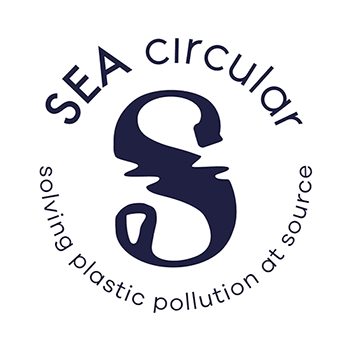
Catalyzing Behavioural Change toward Single-Use Plastics in the South-East Asia
Bangkok, 22 April 2022
The 100 Days to #BeatPlasticPollution campaign has set a benchmark with its creative work and successful outreach plan. It has specific relevance to the identified solutions of engaging with communities and youth via education, sharing and via employing clear communication.
The campaign was developed by the SEA circular project in partnership with MeshMinds Foundation, to create region-wide awareness on plastic pollution and public support for policies to change plastic value chain management. The campaign aimed to unify the efforts of young sustainability advocates from the South-East Asia region by spotlighting their day-to-day grassroots activities against the threat of pollution and waste to share and express their support on social media to effect real change and inspire the next generation and also employ “hashtag activism” on social media.
The campaign was run for 100 days starting from 1st of September 2021 until 10th December 2021 on social media including Facebook, Instagram and Twitter based on a recent study by SEA circular that social media was perceived by 88% of consumers in South-East Asia as the most effective platform to learn more about and be encouraged to take action on plastic waste issues.
The focus of the campaign was on supporting awareness and catalyzing behavioral change to avoid single use plastic by inviting people to commit for “100 days” to try to avoid seven “polluting plastics” specific to the region and commonly used on a daily basis, such as bottles, bags, straws, cutlery, takeaway containers, masks and bubble tea cups. At the same time, young sustainability advocates were invited to use the digital toolkit that comprised four Augmented Reality (AR) filters and games to challenge and mobilize their peers on social media to join the movement to #BeatPlasticPollution.
The 100 Days to #BeatPlasticPollution campaign had reached over 21 milion unique individuals with over 1.2 million people playing with the AR experiences, resulting in a high engagement rate. In addition, the campaign reached 45 different countries, including the 7 target countries that were identified at the start of the project. The campaign also received numerous high-profile features, including the BBC, Asia Development Bank (ADB) and at the SEA of Solutions 2021 virtual conference.
Major learnings of this campaign include the importance of advocating for sustained commitment to avoid single use plastic and acknowledgment that new habits need to be formed over time; telling the stories of ‘real’ role models represented by young sustainability advocates operating at the grassroots level; embracing innovation using the latest digital technologies and gamification techniques to increase engagement with youth-focused communications; using visual communication techniques to power inclusive education that is accessible to all, regardless of nationality, age, or gender; and leveraging partnerships to maximize support and amplification opportunities.
In future, campaigns should include plans to educate youth and engage them in community level awareness raising initiatives focused on action-oriented activities to help them own their efforts towards the goal of ending plastic pollution and rebuilding a sustainable future.
Key recommendations arising from the session include but not limited to promoting sustainable choices for consumers through awareness-raising, sustainable alternatives, legislations and leveraging online campaigns for higher engagement.
About SEA circular project
The SEA circular project – Reducing marine litter by addressing the management of the plastic value chain in Southeast Asia is implemented by the UNEP Regional Office for Asia and the Pacific and the Coordinating Body on the Seas of East Asia (COBSEA), with funding support from the Government of Sweden. SEA circular aims to reduce and prevent plastic pollution and its impact by working with governments, businesses, civil society, academia, and international partners. The initiative promotes market-based solutions and enabling policies to transform plastic value-chain management, strengthens the science base for informed decision making, creates outreach and awareness. The project leverages COBSEA’s regional mechanism to tackle the transboundary challenge of marine litter in a harmonized manner.
Contact Us
Website: www.sea-circular.org
Email: sea-circular@un.org
news
